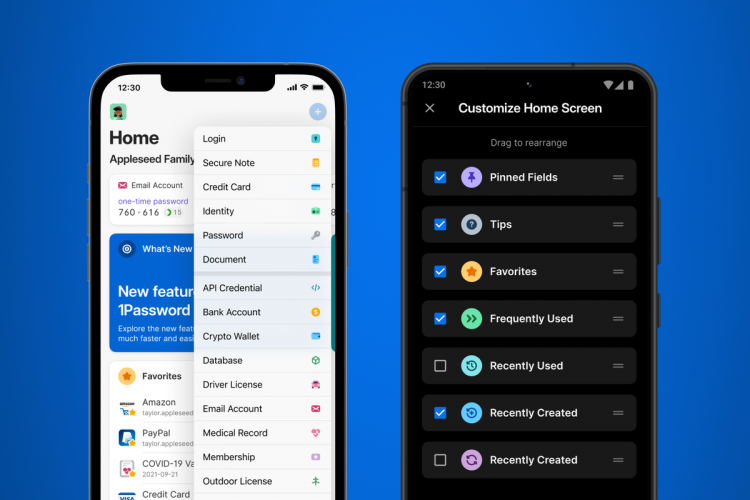1Password is launching a big update to its Android and iOS apps today. 1Password 8 overhauls the design of the mobile password management apps in many of the same ways the 1Password 8 apps for Windows and Mac were redesigned in recent months. The new mobile interface includes a personalized home tab, which should make it easier to find logins, pin favorites, and organize your passwords.
The new personalized homescreen also lets you easily see logins you’ve recently created and even pin individual fields from a login. You can also reorder sections and add quick actions to the home tab, and the navigation bar now provides quick access to search, home, and settings.
Search isn’t super obvious in the current 1Password mobile app, and the navigation bar is split into favorites, categories, tags, and settings instead. 1Pasword 8 greatly simplifies the entire interface and navigation bar, making it easier for 1Password users who aren’t familiar with the mobile app to find their logins more easily. The updated app also has new and improved icons, typography, and detailed views for logins and vaults.
New icons and customizable homescreen on 1Password 8 mobile.
Image: 1Password
“Over the last couple years we’ve been making a concerted effort to unify our design language,” explained Michael Fey, VP of engineering for client apps at 1Password, earlier this year. “The updated designs result in a modern take on 1Password that is both familiar and fresh.”
The improvements in usability across mobile and desktop are particularly important as 1Password attempts to capture even more subscribers. 1Password now has more than 100,000 paying business customers, and it saw subscriber growth during the pandemic that led to a $6.8 billion valuation for the company earlier this year.
1Password has also been making it easier to share files, documents, and passwords with just a link and even helping people remember which “sign in” service they used on websites. The service also added a hide my email feature last year, giving all users the option of hiding their email addresses from apps and services.
Source by www.theverge.com






























